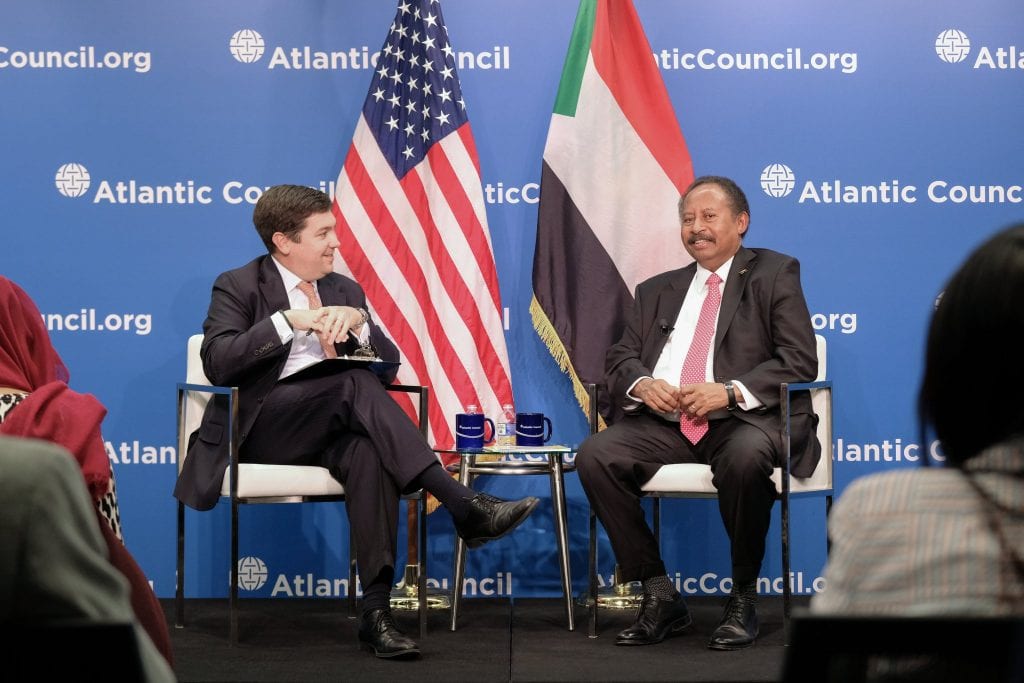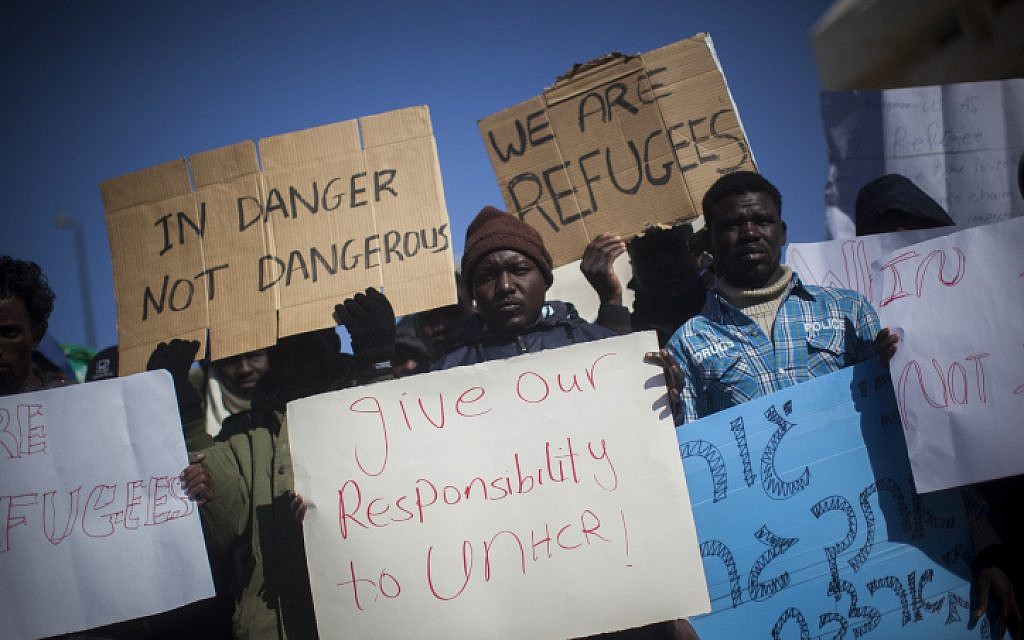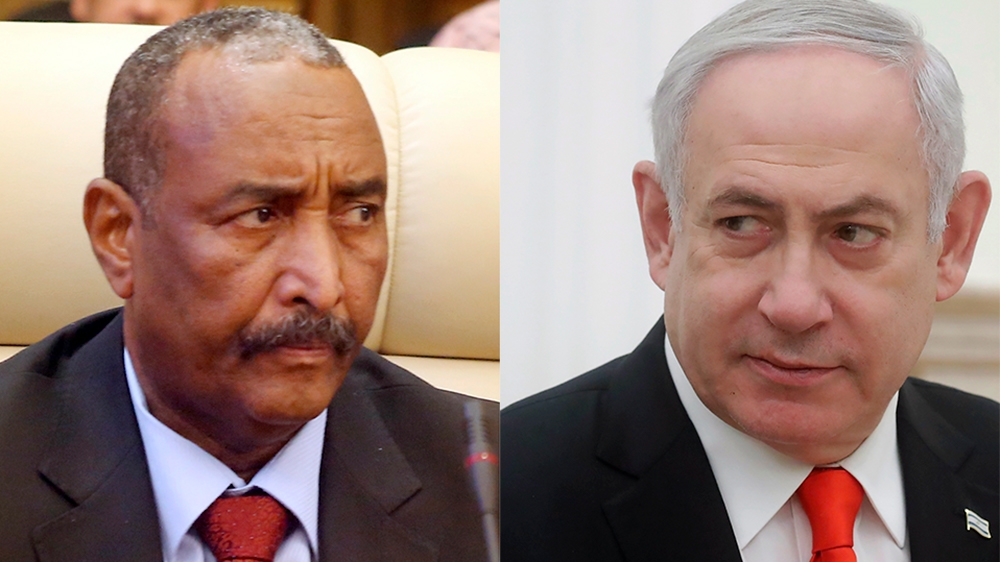Prospects and confusion over Sudan and Israel relations
22 August 2020
In October 2012, former president Omar al-Bashir referred to Israel as the “Zionist enemy that will remain the enemy.” Sudan’s steadfast enmity towards Tel Aviv has been long term, having declared war on Israel during the Arab-Israeli conflict in June 1967.
But more contemporary developments suggest the icy relations between the two countries are beginning to thaw. Whether the Sudanese government is in lockstep over this development and the public will accept such a dramatic diplomatic change, however, is another matter.
Evidence suggesting improved relations
“There is no reason to continue hostility between Sudan and Israel,” remarked the former spokesman to the Foreign Affairs Ministry, Haider Badawi, in an interview with Sky News Arabia last Tuesday. “We don’t deny that there are communications with Israel,” Badawi added – describing the United Arab Emirates recent move to sign a peace agreement with Israel as a courageous move. The former spokesman’s remarks drew a pledge from Israeli Prime Minister Benjamin Netanyahu to “do all that’s needed” to wrap up the deal. Israel’s Intelligence Minister Eli Cohen also corroborated Badawi’s comments amidst interviews with the Israeli state broadcaster, claiming the two counties are working to normalise relations, possibly by the end of this year.
These recent developments follow a February meeting between Israel’s prime minister and the Head of the Sovereign Council, Abdel-Fatah al-Burhan in Entebbe, Uganda. Even Bashir’s former public statements appear hollow after his foreign minister, Ibrahim Ghandour, remarked that Sudan would be open to considering the normalisation of relations with Tel Aviv.
An unbaked cake
But Sudan’s newly appointed Foreign Minister, Omar Ismail, sacked his spokesman the following day for his comments on Israel – claiming no such deal had been reached. In a press statement, Ismail said the government was “surprised” by the claim of his former spokesman. The events, as described by Israel’s former Foreign Ministry director-general Dore Gold, was akin to going to “the kitchen and finding that the cake was not done.”
The fact that Foreign Minister Ismail denies such a relationship may not mean that others within the government are not actively pursuing closer ties between Sudan and Israel, says Sudan-analyst Cameron Hudson.

Hudson, a Senior Fellow at the U.S.-based foreign policy think-tank the Atlantic Council and long-time former Chief of Staff for the Office of the US Special Envoy to Sudan, believes Israel is attempting rapprochement through intelligence and military channels rather than diplomatic and civilian ones. “Civilians have not been involved in this conversation (between Sudan and Israel) – remember, it was Burhan who met Netanyahu, Prime Minister Hamdok was seemingly unaware at the time.” It is telling that Israel’s Intelligence Minister, Eli Cohen, told Israeli broadcasters that “the Prime Minister (Netanyahu) held a historic meeting with the ruler of Sudan,” in reference to Sovereign Council leader Lt.-Gen. Abdelfatah al-Burhan and not Prime Minister Abdalla Hamdok. The meeting illuminates the uncertainty over who is in charge of foreign relations — the military or civilians. It is the Sovereign Council leader, for instance, who met Chad’s President Idris Deby last Thursday to discuss border security and trade issues.
Why now?
Facing nearly daily civil protests across the country, the timing to ease relations with Israel seems circumspect –especially considering the fact many Sudanese may oppose such a diplomatic shift. But as one Sudanese government official told the Associated Press, the timing is connected to the United Arab Emirate’s recent decision to normalise relations with the Jewish state. Sudan harbour’s strong political and economic ties to the UAE and the Emirati move encouraged Sudan to overcome fears of a public backlash towards potential relations with Tel Aviv, the official said on condition of anonymity.
According to a blog written by Badawi, Sudan would benefit from bilateral relations in a number of ways including agricultural and industrial technologies while Israel would gain openness to the Arab world. “If Sudan recognises Israel – this shows how much the government has changed, not just civilians but also military wings –it’s a break from the past and a powerful Islamist minority,” Hudson told Ayin. A partnership between the two countries could also encourage the U.S. to lift Sudan from the state sponsor of terrorism list, encouraging greater international access to much-need aid, he added.
But not all are convinced closer relations with Israel will benefit the country and may trigger a public backlash against the transitional government. “This meeting goes against all our revolutionary principles and what we fought for,” said Hisham al-Shawani, an activist and protest leader back in February when Burhan held talks with the Israeli prime minister. “The protest movement rejects normalisation with Israel and stands with the Palestinians.” Al-Shawani’s comments also reflect a statement issued at the time by the Sudan Professional’s Association (SPA), the group that spearheaded the anti-Bashir protests, that categorically rejected the meeting “and any outcomes that resulted from the meeting.”
Abubaker Abdalrizig, a leader in the Islamist Popular Congress Party, believes the majority of Sudanese reject normalising ties with Israel and will incite the public against the Forces for Freedom and Change –negatively impacting the country’s development. “Sudan will not benefit from relations with Israel,” Abdalrizig added. “Look at other countries Israel has developed relations with such as Jordan, Mauritania, Morocco –these relationships have not helped them.”
Wary Refugees

Sudan’s public both within and outside of the country are wary of a diplomatic deal with Tel Aviv –not least Sudanese refugees residing in Israel. During interviews with Israeli media, security chief Cohen commented that any peace deal with Sudan would include a mechanism for the return of Sudanese migrants. There are roughly 6,500 Sudanese nationals in Israel, representing 20% of all asylum seekers in the country. Of these, according to the UN, 4,500 have submitted requests for political asylum but are still pending a decision. Many Sudanese nationals fear improved diplomatic relations will ensure their forced return –including the estimated 1,900 refugees emanating from Sudan’s conflict zones in Darfur (1,600) and the Nuba Mountains and Blue Nile regions (300). According to Israel’s Population and Immigration Authority, the only reason Sudanese are not currently being repatriated to Khartoum is due to the lack of practical diplomatic relations between the two countries –not because Israel recognises Sudan as a country in crisis. According to the independent, progressive Israeli daily Haaretz, many Sudanese refugees in the country fear imminent deportation. “We are living here without residential status, which means they can undermine in one blow all our security in life and everything we’re trying to build,” said one asylum seeker named Adam to Haaretz. “Think of yourselves, you live in a certain city, your kids are in school, you have work, but you always have the fear that one day some politician will want to get more votes at your expense and will send you and your children to a dangerous country, and everything you try to build will be destroyed.”


